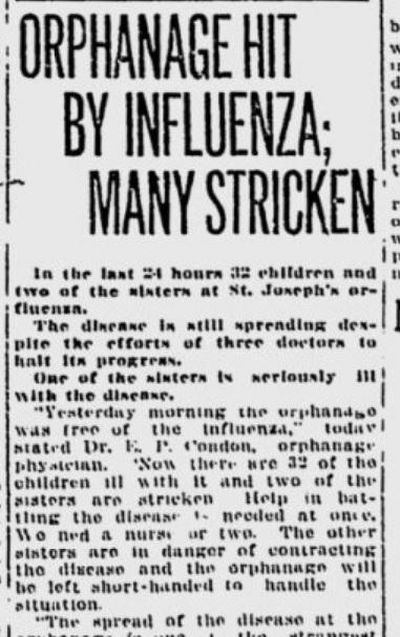100 years ago in Spokane: New flu cases at orphanage incite renewed panic from community

Just when it appeared the 1920 flu epidemic was on the wane, alarming news came from the St. Joseph’s Orphanage in Spokane.
“Yesterday morning the orphanage was free of influenza,” said Dr. E.P. Condon, orphanage physician. “Now, there are 32 of the children ill with it and two of the sisters are stricken. Help in battling the disease is needed at once. We need a nurse or two. The other sisters are in danger of contracting the disease and the orphanage will be left short-handed to handle the situation.”
One of the sisters was reported to be seriously ill.
Condon said the sudden outbreak was “one of the strangest features of the epidemic.”
“We can’t figure out the cause of the sudden attack,” he said.
This outbreak contributed to a spike in new cases for the day, for a total of 68, after several days of single-digit increases.
From the obituary file: Maj. Gerhard Luhn, veteran of many of the most famous battles of the Civil War, died at his Spokane home.
He was born in Germany and arrived in Ohio at age 12. He joined the U.S. Army in 1853 and during the Civil War served in the Army of the Potomac, under Gen. George B. McClellan. He was taken prisoner in Virginia, but released after six weeks and returned to the U.S. Army, where he was commissioned as a lieutenant.
He was present in the battles of Bull Run, Groverton Heights, Gettysburg, Ashby’s Gap, Smoker’s Ridge and Tolopotomy River. He served under Gen.Ulysses S. Grant in the latter stages of the war.
“He was present at the surrender of General Lee at Appomattox,” said his obituary.
He later was sent to the West and fought in Indian battles in Wyoming and Montana.